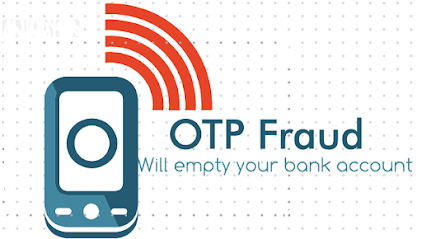India has been rapidly transforming into a digital economy over the past few years, with an increasing number of people using mobile banking and digital payment systems for financial transactions. While these technologies offer convenience and efficiency, they also come with a significant risk of fraud, particularly in cases where one-time passwords (OTP) are involved. In this article, we will explore the various types of OTP fraud in India and how you can protect yourself from becoming a victim.
- What is OTP Fraud?
OTP fraud occurs when a fraudster gains access to a person's OTP, usually through deception or social engineering, and uses it to carry out unauthorized transactions or access sensitive information. Fraudsters may use various tactics to obtain OTP, such as phishing emails or text messages, phone calls, or fake websites that mimic legitimate banking or payment portals.
Types of OTP Frauds in India
Here are some common types of OTP fraud in India:
- SIM Swap Fraud: In this type of fraud, a fraudster tricks a telecom service provider to issue a new SIM card in the victim's name. Once they have the new SIM, they can receive OTP messages and use them to carry out fraudulent transactions.
- Phishing Attacks: In a phishing attack, a fraudster sends a fake email or text message that appears to be from a legitimate financial institution. The message asks the recipient to click on a link or provide personal information, including OTP, to verify their account.
- Fake Websites: Fraudsters create fake websites that look like legitimate banking or payment portals to trick users into entering their account information, including OTP.
- Malware Attacks: Malware can be installed on a person's device through a fake app or by clicking on a malicious link. The malware can then steal OTP and other sensitive information from the device.
Preventing OTP Fraud in India
- Here are some tips to protect yourself from OTP fraud in India:
- Do not share OTP with anyone, including bank representatives.
- Do not click on suspicious links or download unknown apps.
- Check the URL of the website before entering any sensitive information.
- Keep your device's software and security up-to-date.
- Use two-factor authentication where possible, such as a fingerprint or facial recognition, in addition to OTP.
- Regularly monitor your bank and credit card statements for any unauthorized transactions.
Conclusion
OTP fraud is a serious threat to India's digital economy, and it's crucial to take preventive measures to protect your finances and personal information. By being vigilant and following best practices for online security, you can reduce the risk of becoming a victim of OTP fraud. If you suspect any fraudulent activity, contact your bank or financial institution immediately to report it.
Report the OTP fraud by sending an email to sachet@rbi.org.in or calling the RBI number at 14440. Online payments and digital transactions are meant to make life easy, but unscrupulous people use them as a platform to carry out sophisticated frauds.
.@RBI Kehta Hai..
— RBI Says (@RBIsays) February 15, 2022
Go digital, go secure.
Never share your PIN, password, OTP, CVV with anyone.
Don’t let your bank account details fall into wrong hands. It may lead to loss.
#BeAware #BeSecure#FinancialLiteracyWeek#rbikehtahai https://t.co/AF3T9lfSc6 pic.twitter.com/mWDDFxkFFr





Good 💖
ReplyDelete